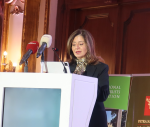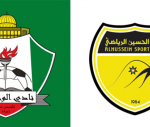You are here
Walking a fine line between Syrian Kurds and Turkey
Dec 07,2017 - Last updated at Dec 07,2017
No one can predict what the Trump administration will do in this region where Arabs, Kurds, Iranians and Turks face destitution, death and destruction due to raging and prospective conflicts. Determined to dictate US policies without interference from people who know and understand the region, Donald Trump changes his mind on a daily basis about how to handle explosive issues.
His flip-flops have recently involved Washington's allies in the Syrian Democratic Forces (SDF), a militia deployed by the US to battle Daesh in its capital, Raqqa, and on the eastern bank of the Euphrates River in the eastern Deir Ezzor province. Having largely accomplished the tasks set by the US, the SDF — and the Syrian Kurds — may be left in the lurch.
The reason the US may discard the SDF is its composition. The majority of fighters in the SDF is formed by People's Protection Units (YPG), the military wing of the leftist Kurdish Democratic Union Party. It is an affiliate of Turkey's separatist Kurdish Workers Party (PKK) which has been fighting Ankara for three decades. Although the PKK is regarded by the US as well as Turkey as a "terrorist group", the US made its offshoot its main strike force in the Syrian conflict, provided it with training and arms, and backed up its operations with US airpower. Having recruited local "moderate" Arab fighters who repeatedly failed to meet expectations, the US has relied on the Kurds as the most effective Syrian militia to join battle with Daesh.
Last week, messages emanating from the White House prompted analysts to observe that the US would soon abandon the Syrian Kurds as Washington had previously dumped the Iraqi Kurds when they were no longer useful allies. Trump told Turkish President Recep Tayyip Ergodan that the US would halt arms supplies to the SDF, while Defence Secretary James Mattis announced the US would withdraw from the SDF heavy weapons such as artillery.
Erdogan, who regards the SDF as an enemy of Turkey due to its domination by Kurdish fighters, was initially mollified, but later lashed out at the US due to its residual support for the SDF. The US subsequently announced it would pull out 400 marines who had been providing the SDF with intelligence to launch precise artillery strikes during the battle for Raqqa.
This move coincided with an admission by the Pentagon that more than 1,000 rather than 500 US troops have been serving in Syria. While pulling out 400 marines may reassure Erdogan to some extent, troops who remain will constantly irritate him.
The rationale for these changes is the role of the SDF is evolving now that Daesh has been defeated in Raqqa and Deir Ezzor. The SDF's ongoing mission is to prevent Daesh from returning to territory it has lost and to police areas under SDF control. Therefore, the SDF no longer requires heavy weapons or logistical support from US forces.
Meanwhile, Russian warplanes joined US aircraft in supporting the SDF offensive east of the Euphrates River, leaving observers wondering why Moscow has suddenly decided to back the Kurds. Since 2011 Moscow has been a close ally of the Syrian government and since 2015 the Russian military has taken part in the war on Damascus' side.
Russian cooperation was confirmed when Noureddine Mahmoud, a spokesman from the SDF, appeared at a press conference dealing with the Deir Ezzor offensive alongside Russian General Alexei Kim at the Hmeimeem military base near Latakia in Syria. Russian and Kurdish flags hung in the background, symbolising their cooperation and
coordination.
While US warplanes struck Daesh targets, Russian forces provided "air and logistical support, advice and coordination on the ground", an SDF statement said. US and Russian command centres prevented accidents.
According to Russia Today, the Russian ministry of defence justified its support for the SDF by stating that the Russian air force has been "working with all armed formations on the ground, trying to deal the final blow to the jihadists in Syria". The Russian military has also met 23 envoys of communities from east of the Euphrates to encourage them to accept SDF protection. The daily said, Russia seeks to replace the US as a backer of the SDF since the "Kurds have recently been abandoned by Washington".
Russia insists that liberated areas will not pose a challenge to Damascus and will remain part of sovereign Syria. The Syrian government may well be worried by Russia's courtship of the Kurds. Moscow has also invited the Kurds to attend the proposed Syrian National Dialogue, a gathering set to negotiate a settlement which has been repeatedly postponed due to Ankara's objections over the invitation to the Kurds.
Like the US, Russia is walking a fine line between the Syrian Kurds and Turkey. The difference between the US and Russia is that President Vladimir Putin has formulated a policy aimed at restoring the role Moscow played in the region during the era of the Soviet Union. Trump has no policy and is incapable of forming a policy.












